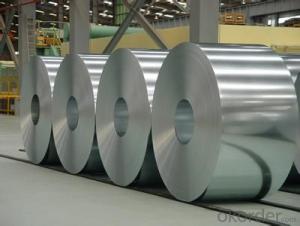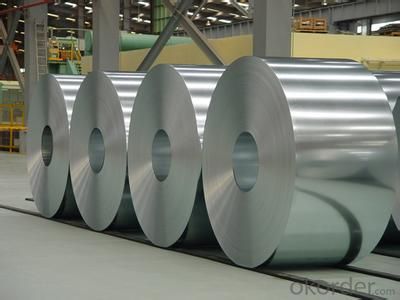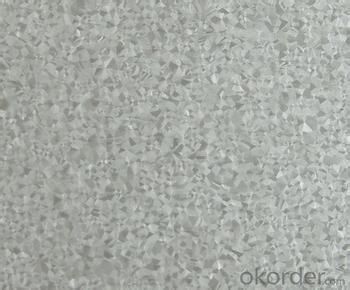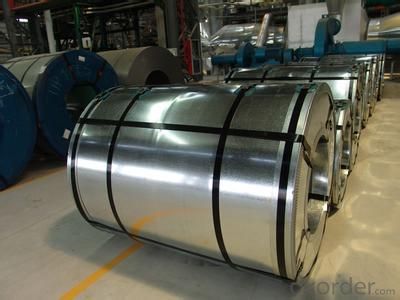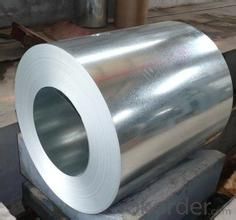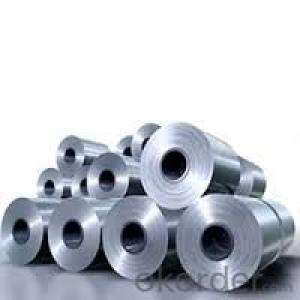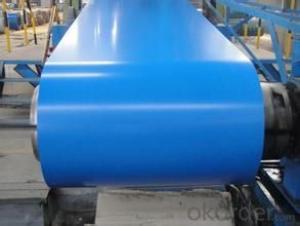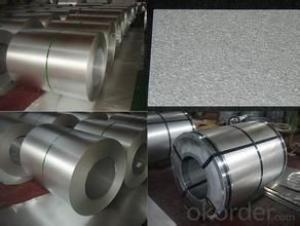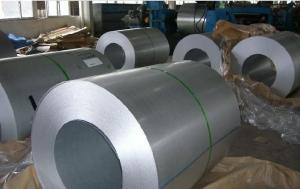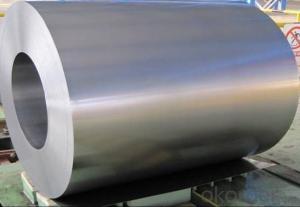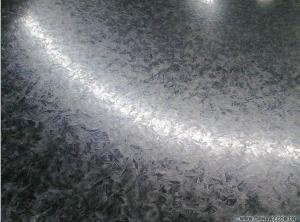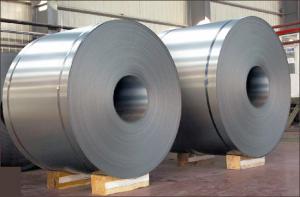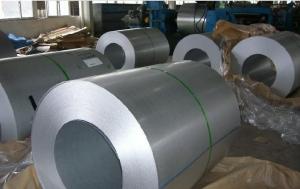The Cheap Hot-dip Aluzinc Steel Building JIS G3321
- Loading Port:
- China main port
- Payment Terms:
- TT OR LC
- Min Order Qty:
- 50 m.t.
- Supply Capability:
- 10000 m.t./month
OKorder Service Pledge
OKorder Financial Service
You Might Also Like
Hot-dip Aluzinc Steel Building Roof Walls
1. Description of the Hot-dip Aluzinc Steel:
Hot-dip aluzinc steel structure is composed of aluminum-zinc alloy, consisting of 55% aluminum, 43% zinc and 2% at 600 ℃ silicon solidification temperature and composition, the entire structure is made of aluminum - iron - silicon - zinc, to form a dense quaternary crystals an alloy.
Hot-dip aluzinc steel has many excellent features: strong corrosion resistance, is three times the pure galvanized sheet; zinc surface with beautiful flowers, can be used as a building outside board.
Applications of hot-dip aluzinc steel:
1)Building: roof, walls, garages, soundproof walls, pipes and modular housing.
2)Automotive: muffler, exhaust pipes, wiper accessories, fuel tank, truck boxes, etc.
3)Appliances: refrigerator back, gas stove, air conditioners, microwave oven, LCD frame, 4)CRT-proof band, LED backlight, electrical cabinets, etc.
5)Farm: barn, sheds, silos, piping and other greenhouse.
6)Other: breaking heat insulation cover, heat exchangers, dryers, warm water, etc.
2.Main Features of the Hot-dip Aluzinc Steel:
• Excellent corrosion resistance
• High temperature oxidation resistance
• High hot reflectance
• Good manufacturability
•Beautiful appearance
•Surface coating
•Cost-effective
3.Hot-dip Aluzinc Steel Images
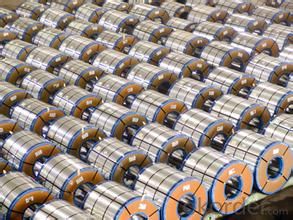
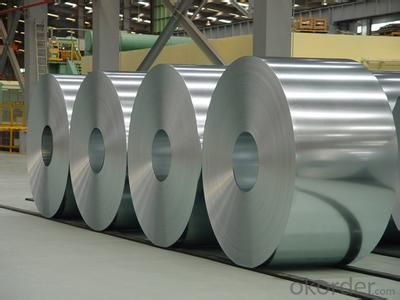
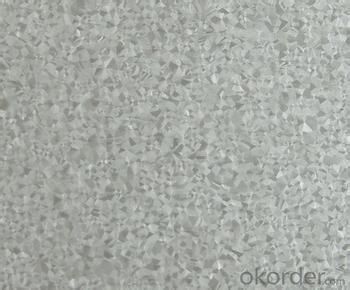
4.Hot-dip Aluzinc Steel Specification
AVAILABLE SPECIFICATION
HOT-DIP ALUZINC STEEL COILS | |
THICKNESS | 0.16mm-3.5mm |
WIDTH | 1250mm MAX |
COATING MASS | 30g/ m2-185 g/ m2 |
SPANGLE | Regular Spangle, Minimized Spangle, Zero Spangle |
SURFACE TREATMENT | Chromated / non-chromated, Oiled / non-oiled, Anti Finger Print |
COIL INNER DIAMETER | 508mm or 610mm |
HOT-DIP ALUZINC STEEL COILS | |||
COMMERCIAL QUALITY | ASTM A792M-06a | EN10327-2004 | JIS G 3321:2010 |
STRUCTURE STEEL | SS GRADE 230 SS GRADE 255 SS GRADE 275 SS GRADE 340 SS GRADE 550 | S220GD+AZ S250GD+AZ S280GD+AZ S320GD+AZ S350GD+AZ S550GD+AZ | SGLC400 SGLC440 SGLC490 SGLC570 |
2.5.FAQ of Hot-dip Aluzinc Steel
We have organized several common questions for our clients,may help you sincerely:
1.What advantages does your company have?
Cement : Annual capacity of 400 million tons, No. 1 in the world
Fiberglass: Annual capacity of 1 million tons fiberglass, No. 1 in the world.
Composite Materials — Carbon Fiber: Annual capacity of 10,000 tons PAN precursor and 4,000 tons carbon fiber, No. 1 in China
Composite Materials — Rotor Blade: Annual production capacity of 15,000 pieces, No.1 in China, Top3 worldwide
Glass: CNBM owns about 20 modern float glass product`ion lines, With annual capacity of 10 million square meters glass.
Light Weight Building Materials: Annual capacity of 1.65 billion square meters of gypsum board, No. 1 in the world.
Commercial concrete: Annual capacity of 0.35 billion cubic meters, No. 1 in the world.
Refractory Material: Annual capacity of 40,000 tons casting refractory, No.1 in the world.
2.What advantages do your products have?
Firstly, our base material is of high quality, Their performance is in smooth and flat surface,no edge wave ,good flexibility.
Secondly, high quality zinc ingoats, 97.5% zinc,1.5% silicon,1% others, the same zinc coating measured by metal coating thickness or by zinc weight
Thirdly, high precision: Tolerance strictly according to ASTM or JISG standard even more rigid.
We have full stes of testing equipment(for t best, cupule,chromatism,salt spray resistance, etc) and professional engineers.
- Q: What are the common methods of slitting steel coils?
- The common methods of slitting steel coils include rotary slitting, multiblade slitting, and shearing.
- Q: Can steel coils be coated with UV-resistant materials?
- Yes, steel coils can be coated with UV-resistant materials. This coating helps protect the steel from the harmful effects of ultraviolet (UV) radiation, such as fading, discoloration, and degradation. UV-resistant coatings are commonly used in various industries to enhance the durability and longevity of steel coils, particularly when exposed to outdoor or high UV environments.
- Q: How are steel coils used in the automotive industry?
- Steel coils are used in the automotive industry to manufacture various components such as car bodies, frames, and structural parts. The coils are first processed by being uncoiled, flattened, and then cut into the required shapes. These steel components provide strength, durability, and rigidity to vehicles, ensuring safety and structural integrity.
- Q: How do steel coil manufacturers meet customer specifications?
- Customer specifications are met by steel coil manufacturers through a comprehensive and systematic approach that involves various stages and processes. The following are some key steps taken: 1. Thoroughly understanding customer requirements: The process begins with manufacturers gaining a complete understanding of their customers' specific requirements. This includes determining the desired dimensions, tolerances, mechanical properties, surface finish, and any other specific characteristics needed. 2. Selecting the appropriate materials: Based on the customer's requirements, manufacturers carefully select the suitable type and grade of steel to meet the specifications. Factors considered include strength, corrosion resistance, formability, and cost-effectiveness. 3. Planning production: Manufacturers meticulously plan their production processes to ensure that customer specifications are met. This involves determining the appropriate manufacturing techniques, equipment, and resources required. 4. Processing the coils: Steel coils undergo various stages such as hot rolling, cold rolling, annealing, pickling, and coating, depending on the customer's specifications. Each step is meticulously controlled to achieve the desired properties and dimensions. 5. Implementing strict quality control: Throughout the manufacturing process, strict quality control measures are enforced to ensure that the coils meet the customer's specifications. This includes regular inspections, testing, and compliance with industry standards. 6. Offering customization and flexibility: Steel coil manufacturers frequently provide customization options to meet specific customer needs. They have the capability to adjust the thickness, width, and length of the coils to match the desired specifications. 7. Promoting effective communication and collaboration: Effective communication and collaboration between the manufacturer and the customer are crucial in meeting specifications. Manufacturers work closely with their customers to address any concerns or modifications required during the manufacturing process. 8. Providing detailed documentation and certification: Once the steel coils are manufactured, manufacturers supply comprehensive documentation and certifications to ensure traceability and compliance with customer specifications. This includes test reports, material certificates, and any other necessary documentation. By adhering to these steps, steel coil manufacturers can consistently meet customer specifications, guaranteeing that the final product aligns with the desired requirements and quality standards.
- Q: What are the advantages of using steel coils in the manufacturing industry?
- There are several advantages of using steel coils in the manufacturing industry: 1. Strength and Durability: Steel coils are known for their high strength and durability, making them ideal for various manufacturing processes. They can withstand heavy loads and resist deformation, ensuring that the final product is reliable and long-lasting. 2. Versatility: Steel coils can be used in a wide range of applications across different industries. They are highly versatile and can be shaped, molded, or cut into different forms and sizes, making them suitable for diverse manufacturing needs. 3. Cost-effective: Steel coils are a cost-effective option for the manufacturing industry. Due to their strength and durability, they have a longer lifespan compared to other materials, reducing the need for frequent replacements. This leads to cost savings in the long run. 4. Excellent Thermal Conductivity: Steel has excellent thermal conductivity, meaning it can efficiently transfer heat. This makes steel coils suitable for applications that require temperature regulation, such as in the automotive and HVAC industries. 5. Recyclability: Steel is one of the most recycled materials globally. By using steel coils in the manufacturing process, companies contribute to a more sustainable and eco-friendly approach. Recycling steel reduces the need for raw materials extraction and energy consumption, resulting in a reduced carbon footprint. 6. Corrosion Resistance: Steel coils can be coated with protective layers, such as galvanization or anti-corrosion treatments, to enhance their resistance to rust and corrosion. This makes them suitable for outdoor applications or industries with corrosive environments. 7. Consistency and Quality: Steel coils offer consistent quality and uniformity in terms of dimensions, mechanical properties, and surface finish. This ensures that the end products meet the required specifications and maintain a high level of quality. In summary, the advantages of using steel coils in the manufacturing industry include their strength, durability, versatility, cost-effectiveness, excellent thermal conductivity, recyclability, corrosion resistance, and consistent quality. These benefits make steel coils a popular choice for various manufacturing processes across different industries.
- Q: How are steel coils used in the production of metal cabinets?
- Steel coils are used in the production of metal cabinets as they serve as the primary raw material. These coils are unwound and cut into precise lengths, which are then formed, shaped, and welded to create the various components of the cabinet, such as the sides, back, and shelves. The steel coils provide the necessary strength, durability, and rigidity required for the construction of sturdy and long-lasting metal cabinets.
- Q: How are steel coils used in the production of doors and windows?
- Steel coils are vital components in the production of doors and windows due to their strength and versatility. These coils are typically made from high-quality steel and are used in various stages of the manufacturing process. Firstly, steel coils are used to create the frame of the doors and windows. The coils are unrolled and cut into specific lengths, depending on the desired dimensions of the frame. The steel is then bent and shaped into the required frame design, ensuring that it is strong and durable. Next, the coils are used to produce the panels or glass holders for the doors and windows. The steel is cut and formed into the desired shape, and then it is either welded or attached to the frame. This ensures that the doors and windows have a sturdy structure and can handle the weight and pressure of the glass or panels. Additionally, steel coils are also used to create the hinges and other hardware components of the doors and windows. The coils are cut and shaped into the necessary parts, ensuring that they are strong enough to support the movement and functionality of the doors and windows. Furthermore, steel coils can be used for decorative purposes. They can be embossed or coated with different finishes to enhance the appearance of the doors and windows. This allows for a wide range of design options, enabling manufacturers to create doors and windows that suit various architectural styles and preferences. In summary, steel coils play a significant role in the production of doors and windows. They are used to create the frame, panels, hinges, and other hardware components, ensuring strength, durability, and functionality. Additionally, they can be used for decorative purposes, allowing for customization and aesthetic appeal.
- Q: What are the common coil packaging methods?
- The common coil packaging methods include shrink wrapping, strapping, banding, and stretch wrapping.
- Q: Can steel coils be stored in unheated warehouses?
- Yes, steel coils can be stored in unheated warehouses as long as proper precautions are taken to protect them from moisture, condensation, and extreme temperature fluctuations.
- Q: What are the common welding methods used for steel coils?
- There are several common welding methods used for steel coils, depending on the specific requirements and applications. Some of the most widely used methods include: 1. Shielded Metal Arc Welding (SMAW): Also known as stick welding, SMAW uses an electrode coated in flux to create an arc between the electrode and the base metal. This method is commonly used for its simplicity and versatility, making it suitable for a wide range of steel coil welding applications. 2. Gas Metal Arc Welding (GMAW): Also known as MIG (Metal Inert Gas) welding, GMAW uses a continuous wire electrode and a shielding gas to protect the weld pool from atmospheric contamination. This method is favored for its high welding speed and excellent control over the welding process. 3. Flux-Cored Arc Welding (FCAW): Similar to GMAW, FCAW uses a continuously fed tubular electrode filled with flux to protect the weld pool. This method is often preferred for its high deposition rates and ability to weld thicker steel coils, making it ideal for heavy-duty applications. 4. Gas Tungsten Arc Welding (GTAW): Also known as TIG (Tungsten Inert Gas) welding, GTAW uses a non-consumable tungsten electrode and an inert gas shield to protect the weld pool. This method is commonly used for its precise control, high-quality welds, and ability to weld thin materials. 5. Submerged Arc Welding (SAW): SAW involves the formation of an arc between a continuously fed wire electrode and the steel coil, while a granular flux covers the arc and weld area. This method is frequently used for its high productivity and ability to weld thick materials. Each of these welding methods has its own advantages and limitations, and the choice of method depends on factors such as the thickness of the steel coil, desired welding speed, weld quality, and application requirements.
Send your message to us
The Cheap Hot-dip Aluzinc Steel Building JIS G3321
- Loading Port:
- China main port
- Payment Terms:
- TT OR LC
- Min Order Qty:
- 50 m.t.
- Supply Capability:
- 10000 m.t./month
OKorder Service Pledge
OKorder Financial Service
Similar products
Hot products
Hot Searches
Related keywords
